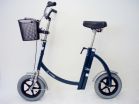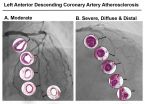(Press-News.org) Faith-based organisations [1] are crucial in achieving the promise of universal health coverage--an adequate standard of health care for all people--especially for poor and marginalised groups, according to a new three-part Series on faith-based health care, published in The Lancet. The Series argues that building on the extensive experience, strengths, and capacities of faith-based organisations (eg, geographical coverage, influence, and infrastructure) offers a unique opportunity to improve health outcomes.
Because of their broad reach and influence, faith-based groups have for centuries played critical roles in delivering education, health, and social services. "Not every community has health services, but most have some type of faith-based group," explains author Professor Edward Mills from Global Evaluative Sciences in Vancouver, Canada. "Religious groups are major players in the delivery of healthcare, particularly in hard-to-reach and rural areas that are not adequately served by government. Yet, the general medical community knows very little about them." [2]
There is a lack of evidence about the magnitude of health services represented and provided by faith-based organisations. Yet, the available evidence indicates that faith-based health providers play an important part in meeting public health needs such as immunisation, antimalarial campaigns, preventing mother and child deaths, and HIV services, especially in fragile health systems (Paper 1). For example, in Sierra Leone, Muslim and Christian leaders led a UNICEF campaign which increased immunisation rates in children under one year old from 6% to 75% [3]. During the Ebola outbreak in west Africa, faith groups were key mediators of community education, especially safe burial, while providing vital medical services and support.
Religious leaders provide a much needed complement to public health messages when they inspire congregations to adopt healthy behaviours (Paper 3). World Vision's 'Channels of Hope' project, for example, mobilised more than 390000 local faith leaders to transform health and development in local communities [4]. "With more support from governments, donors, and international faith networks, this movement could rapidly scale up to reach millions of people with critical health issues," write the authors.
The Series outlines many case studies showing effective partnership between religious leaders and groups with governments, public-sector agencies, and international development actors. The authors discuss controversies in faith and health care, but are optimistic that with better understanding of the interface between faith perspectives and health care, and with improved professional and intellectual cooperation, improved services with a better reach can be accomplished. Towards this goal, they propose mechanisms for improved collaboration in order to save lives (Paper 2). They also note successful examples of faith groups organizing themselves across traditions and within countries or regions to be more accessible partners to governments and donors (Paper 3).
According Professor Mills, "As the global health community plans for sustainable health goals for the future, it will be crucial to leverage existing infrastructure and existing community partnerships to improve health outcomes. Faith-based organisations often represent the only health infrastructure in a region and have strong cultural ties to the communities. It is time for the general medical community to recognise the magnitude of services offered and partner or support to provide long-standing improvements in health."
The first paper in the Series was led by Dr Jill Olivier from the School of Public Health and Family Medicine at the University of Cape Town in South Africa; the second paper by Andrew Tomkins, Emeritus Professor of International Child Health at University College London, London, UK; and the third paper by Jean Duff from the Partnership for Faith and Development, Washington, DC, USA.
INFORMATION:
The Series was supported by a grant from Capital for Good and will be launched in Washington DC, USA, at the World Bank Group Headquarters on Tuesday 7 July from 16:00-18.00. Attendance is free-of-charge, but by invitation only. To assure that your name is listed on the Bank clearance list for the event, please RSVP at http://www.rsdconference2015.org/lancet-faith-based-health-care-series-registration.html
NOTES TO EDITORS:
[1] Faith-based groups as diverse as Islamic Relief, Salvation Army, Anglican Alliance, Tearfund, Catholic Agency for Overseas Development, Samaritan's Purse, and Adventist Relief and Development Agency.
[2] Quotes direct from author and cannot be found in text of Series.
[3] Building trust in immunization. Partnering with Religious Leaders and Groups. http://www.unicef.org/ceecis/building_trust_immunization.pdf
[4] World Vision Inc. Channels of Hope: igniting a movement to transform communities. http://www.wvi.org/health/publication/channels-hope
Drinking alcohol while pregnant is common, ranging from 20% to 80% among those questioned in the UK, Ireland, Australia and New Zealand, reveals a study of almost 18,000 women published in the online journal BMJ Open.
Women across all social strata drank during pregnancy, the findings showed. But expectant mums were significantly more likely to be drinkers if they were also smokers.
The researchers base their findings on an analysis of data from three studies: The Growing up in Ireland (GUI) study; the Screening for Pregnancy Endpoints (SCOPE) study; and the Pregnancy ...
The heightened risk of death after admission to hospital at the weekend--the so-called 'weekend effect'--is a feature of several developed countries' healthcare systems, and not just a problem for hospitals in England, reveals research published online in BMJ Quality & Safety.
The international nature of the findings suggests that this is a systematic phenomenon that not only crosses time, but also space, say the researchers.
In a bid to look in more detail at the evidence for the link between higher rates of death for patients admitted to hospital at weekends compared ...
A new smartphone app warns drinkers if they go over the recommended maximum daily/weekly units of alcohol, to help them better manage their intake, reveals a commentary published in the online journal BMJ Innovations.
The Alcohol Tracker, which has been developed by doctors and based on the clinical evidence of what works best, also provides built-in psychological therapies and helpline links for users to help steer them away from hazardous drinking.
Excess alcohol kills millions worldwide every year, but many available smartphone apps to manage drinking are not informed ...
1. For patients with no history of stroke, even very small brain lesions increase risk for death
Free abstract: http://www.annals.org/article.aspx?doi=10.7326/M14-2057
URL goes live when embargo lifts
For asymptomatic patients with no history of clinical stroke, having even very small brain lesions (less than 3 mm) detected by magnetic resonance imaging (MRI) triples their risk for stroke and death, according to a study published in Annals of Internal Medicine. Having both very small and larger lesions increases the risk to eight-fold.
Subclinical brain infarctions ...
Scientists with the University of Mississippi Medical Center (UMMC) and colleagues found that very small brain lesions noted on brain imaging that would typically be disregarded by clinicians are associated with a heightened risk of stroke and death. The findings are in today's (July 7, 2015) Annals of Internal Medicine.
The discovery about these tiny lesions -- areas of the brain where tissue may have been damaged by injury or disease -- may help physicians identify people at risk of stroke and death as early as middle age, even when they are displaying no symptoms of ...
A study in the online edition of Annals of Internal Medicine suggests that coronary artery calcification (CAC) scans could help physicians identify patients at risk for premature death.
According to the National Institutes of Health, a CAC is an x-ray test that looks for specks of calcium in the walls of the coronary arteries. These specks of calcium are called calcifications and are an early sign of coronary artery disease.
Researchers from Emory University School of Medicine, led by Leslee Shaw, PhD, professor of cardiology, collected and assessed CAC scores and ...
In a first-of-its-kind study, researchers have investigated the impact of different walking aids on patients with chronic obstructive disease (COPD).
Walking with the help of a rollator (a frame with wheels, handlebars, and a built-in seat) resulted in the longest distance walked and most time spent walking. The use of walking with assistance of a draisine (a bicycle without pedals) improved walking speed with fewer strides but did not improve the time spent walking by COPD patients to cover a longer distance. "Patients with COPD walked significantly further and longer ...
In a study of 1159 males who illicitly used amphetamines, half of participants said drug use had no impact on their sexual functions, while the other half reported impacts such as reduced erectile rigidity and sexual satisfaction, enhanced orgasmic intensity, and delayed ejaculation.
"Compared with 211 matched controls, amphetamine users were twice as likely to experience erectile dysfunction," said Dr. Bang-Ping Jiann, senior author of The Journal of Sexual Medicine study.
Amphetamines are a group of drugs that stimulate the central nervous system and contain ingredients ...
Researchers have long had reason to hope that blocking the flow of calcium into the mitochondria of heart and brain cells could be one way to prevent damage caused by heart attacks and strokes. But in a study of mice engineered to lack a key calcium channel in their heart cells, Johns Hopkins scientists appear to have cast a shadow of doubt on that theory. A report on their study is published online this week in Proceedings of the National Academy of Sciences.
"We confirmed that this calcium channel is important for heart function," says senior investigator Mark Anderson, ...
July 6, 2015 CHAPEL HILL, NC - Insulin resistance affects tens of millions of Americans and is a big risk factor for heart disease. Yet, some people with the condition never develop heart disease, while some experience moderate coronary blockages. Others, though, get severe atherosclerosis - multiple blockages and deterioration of coronary arteries characterized by thick, hard, plaque-ridden arterial walls. Researchers at the UNC School of Medicine created a first-of-its-kind animal model to pinpoint two biomarkers that are elevated in the most severe form of coronary disease.
The ...

